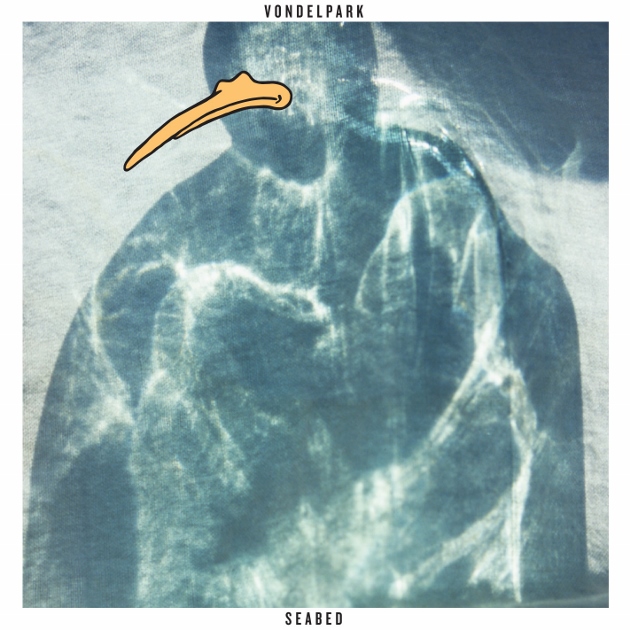London trio Vondelpark have already released a couple of EPs on Belgian dance music label R&S records. This home seemed natural for them on those two releases as their music was more rooted in dance trends (though never making downright floor-fillers), but on their first full length, Seabed, the band seem to have found their own sound that sets them apart from others on the label. This becomes clear from the changes in the new version of “California Analogue Dream,” which eschews the more active beat and scrappier vocals from the previously released Sauna EP version, and inputs a more simplistic driving beat along with clear vocals which better suit Vondelpark’s new style as purveyors of utterly laid back music.
Vondelpark are working with the same tools as other artists on R&S Records and as they themselves have used previously, but they’re now doing it with added clarity which brings more vibrancy to their songs. The title Seabed aptly sums up the sound of the album, with each song having a distinct atmosphere and a feeling of weightlessness, usually added by a buoyant bassline or a small flurry of expertly placed electronics that can bubble up and fizz around the tracks. From the opening notes of “Quest” and graceful introduction of Lewis Rainsbury’s voice you feel as if you’re being gently submerged in their aquatic sonics, where they have plenty of shimmering and beautiful treasures to show you. Considering how many different elements are being used in each song, Seabed is an impressively simple enjoyment, which has a lot to do with the aforementioned weightlessness of the tracks. Simplistic bass and drums are almost always present holding the tracks together, but they can easily be forgotten about in the depths of these songs, for example “Blue Again” or “Dracula” where the shimmering atmospheric guitars massage your brain at the same time as the effervescent electronics tickle your attention.
Rainsbury’s voice is used much more clearly than on any of the band’s previous releases, and this only adds to the dream-like qualities of the songs. He never over-emphasises and almost sounds like he’s half-yawning at times, but this only helps the listener to slide easily into the correct mindset for Seabed. The lyrics are largely unspecific and focus around encouraging a good time, and are deceptively persuasive in doing so. Rainsbury’s lackadaisical repetition of the song’s title in “Come On” shouldn’t be compelling, but it’s unnaturally seductive especially combined with the clipped electronics used in the song which sound like they’re nipping at your heels and urging you on as well. Even when discussing a broken down relationship on “Seabed” he dismisses it with “we’re going in circles, but that’s the way we play it,” and then these concerns are quickly swept aside as a placid wave of synths and a burble of melodic activity effortlessly distracts attention away and into a grander vista.
Seabed is a luscious album that implores you to dive into the gorgeous depths of its sound and atmosphere. It’s the kind of album into which you drift deeper into as it progresses, but it also allows you to wander into your own thoughts while staying entirely engaged in what’s going on in the music. By the time the divine closing track “Outro 4 Ariel” comes around and Rainsbury is elatedly singing “I’m on the seabed, I might as well just be dead” amongst quixotic echoing piano, guitar and horns, as if he’s just floated into an ecstatic dream, you’ll be right there with him.


